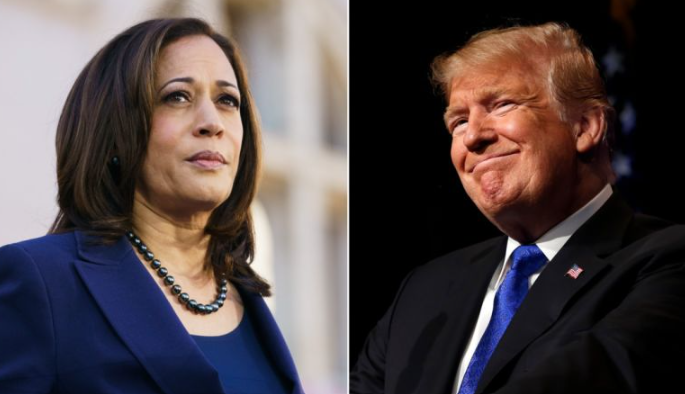As the 2024 election cycle heats up, the economy remains front and center, with inflation continuing to weigh heavily on the minds of American voters. Both former President Donald Trump and Vice President Kamala Harris have made combating rising costs a cornerstone of their economic platforms, but recent comments from Chicago Federal Reserve President Austan Goolsbee suggest that their arguments might be oversimplified and potentially misleading.
Goolsbee, a seasoned economist and a key voice at the Fed, carefully avoided directly addressing the political implications of the presidential race during his appearance on CBS’s “Face the Nation.” However, his remarks provided a clear critique of some of the economic strategies being proposed by both Trump and Harris, urging caution against overstating the impact of corporate pricing strategies and tariffs on inflation.
Vice President Harris has proposed aggressive measures to tackle what she describes as “corporate price-gouging,” particularly in the food and grocery sectors. The Biden administration has repeatedly suggested that companies are inflating prices beyond what is justified by their production costs, contributing to the ongoing burden of inflation on American families. However, Goolsbee cautioned against attributing high prices solely to corporate greed, noting that price and cost dynamics can fluctuate significantly throughout the business cycle.
“The difference between what’s happening to prices and what’s happening to costs, that can vary a lot over the business cycle,” Goolsbee explained. His statement underscores the complexity of inflationary pressures, which cannot be fully explained by simplistic narratives of corporate exploitation.
On the other side of the aisle, former President Trump has revived his hardline stance on tariffs as a central element of his economic agenda. Trump has promised to impose higher tariffs across the board, particularly targeting Chinese imports, as a way to protect American jobs and industries. Yet, Goolsbee highlighted the potential short-term inflationary impact of such measures. While he acknowledged that tariffs would lead to an immediate increase in prices, he also emphasized that these effects are typically one-time events rather than ongoing drivers of inflation.
“Tariffs raise prices,” Goolsbee said, clarifying that while these price hikes are not necessarily indicative of long-term inflation, they do result in higher costs for consumers in the short run.
Trump’s assertion that tariffs function as a tax on foreign countries, rather than on American consumers, has been a key talking point at his rallies. However, Goolsbee’s comments suggest that this perspective may overlook the direct impact tariffs have on domestic prices, contradicting the former president’s narrative.
Inflation, which reached alarming levels in mid-2022, has been slowly easing in recent months. The latest consumer price index report showed the lowest annual inflation rate since March 2021, offering some relief to inflation-weary Americans. Nevertheless, the issue remains a critical concern, and both Trump and Harris are vying to position themselves as the candidates best equipped to address it.
As the Federal Reserve prepares for its upcoming meeting in Jackson Hole, Wyoming, the financial world is closely watching for any signs of a shift in interest rate policy. While the Fed has made strides in cooling inflation, Goolsbee hinted that the central bank is carefully weighing its next moves, particularly given the looming possibility of a recession.
Goolsbee’s comments serve as a reminder that the economic challenges facing the United States are complex and multifaceted. Simple solutions, whether in the form of banning so-called “corporate price-gouging” or hiking tariffs, may not be the silver bullets they are made out to be on the campaign trail. As voters consider their options in the upcoming election, it is crucial to recognize the nuances of economic policy and the potential unintended consequences of quick fixes.
For conservatives, Goolsbee’s remarks highlight the importance of grounding economic policies in sound principles rather than populist rhetoric. The American economy needs strategies that address the root causes of inflation and promote sustainable growth, rather than those that offer short-term political gains at the expense of long-term stability.








